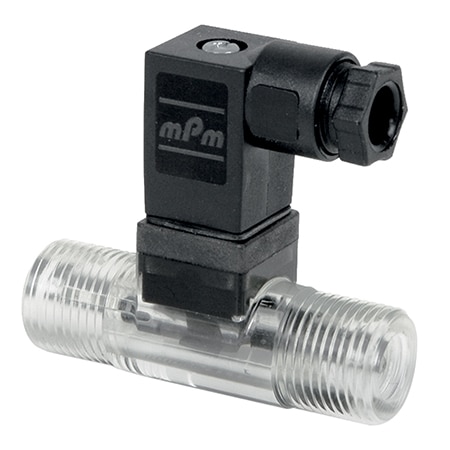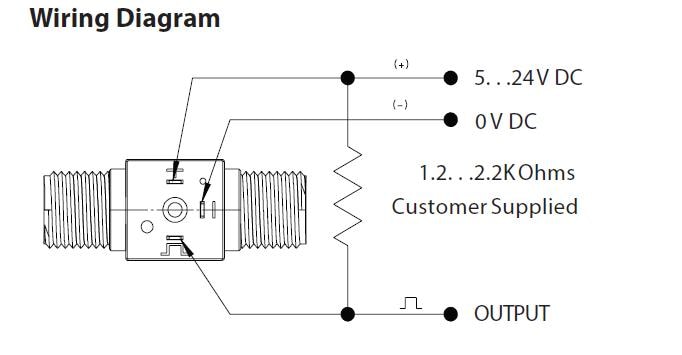PST joins DwyerOmega. Read more>

Edit these specs to order a different model. Not all combinations are valid. Options compatible with previous selections will be in bold.
*Highlighted options are not compatible. Please select a different combination.
The Vision Turbine Meters comply with the lead-free provisions of the Safe Drinking Water Act. Available models include meters that are:
The rotor is turned by the liquid force proportional to flow. A Hall effect sensor supplies pulses that can be used for digital or analog signal processing. The generated pulses are specified as a K-factor.
OPERATING PRINCIPLELiquid flow causes a bladed turbine inside the meter housing to turn at an angular velocity directly proportional to the velocity of the liquid measured. As the blades pass beneath a magnetic pickup coil, a frequency signal is generated. Each pulse is equivalent to a discrete volume of liquid. The frequency pulse is directly proportional to the turbine angular velocity and the flow rate. The large number of pulses provides high resolution. As the mass of the turbine is small, the response time is fast. It is not necessary to install a straight length of pipeline upstream of the meter. The simple mechanical construction of the Vision meter provides a long lifespan without any loss of accuracy. Pressure spikes less than the burst pressure rating do not affect the measurements.
